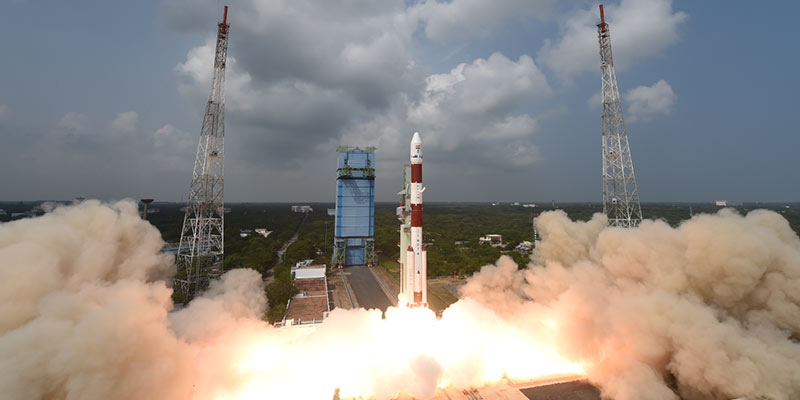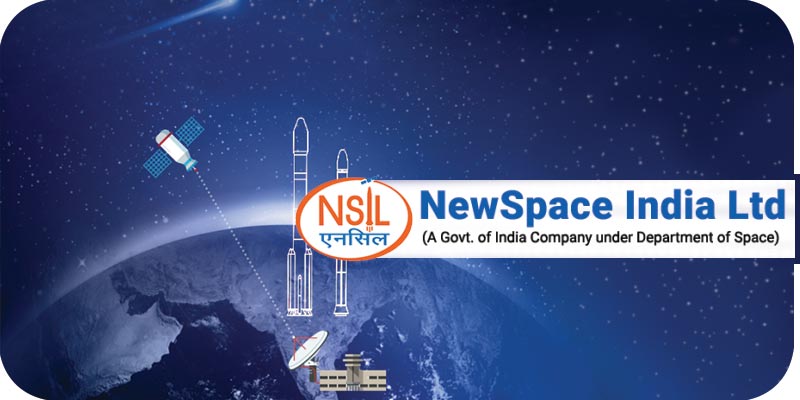- India
- Apr 21
Govt unveils Indian Space Policy 2023
• The global space economy is valued at about $360 billion. Despite being one among a few spacefaring nations in the world, India accounts for only about 2 per cent of the space economy.
• Over the last two decades, the private sector has played an increasingly important role in other spacefaring countries within the global space economy.
• The government of India has unleashed reforms in the space domain opening doors for enhanced participation of non-governmental entities (NGEs) in carrying out end-to-end activities in the space domain and with an aim to provide them a level playing field.
• Subsequent to these reforms, the government seeks to provide regulatory certainty to space activities by various stakeholders, in order to create a thriving space ecosystem.
• The Indian Space Policy 2023, which was approved by the Cabinet Committee on Security, was made public on April 20.
Strategy
• The government seeks to pursue a holistic approach by encouraging and promoting greater private sector participation in the entire value chain of the space economy, including in the creation of space and ground based assets.
• Thus, Indian consumers of space technology or services (such as communication, remote sensing, data-services, launch-services, etc), whether from public or private sectors, shall be free to directly procure them from any source, whether private or public.
Towards this end, the government shall focus on:
i) Encouraging advanced Research & Development in the space sector to sustain and augment the space programme.
ii) Providing public goods and services using space technology for national priorities.
iii) Creating a stable and predictable regulatory framework to provide a level playing field to NGEs in the space sector through the Indian National Space Promotion and Authorisation Centre (IN-SPACe).
Indian National Space Promotion and Authorisation Centre (IN-SPACe)
• Indian National Space Promotion and Authorisation Centre (IN-SPACe) is a single-window, independent, nodal agency that functions as an autonomous agency in the Department of Space (DOS).
• IN-SPACe is responsible to promote, enable, authorise and supervise various space activities of NGEs including building launch vehicles and satellites and providing space-based services, sharing space infrastructure and premises under the control of DOS/ISRO, and establishing of new space infrastructure and facilities.
• The agency acts as an interface between ISRO and NGEs and assesses how to utilise India’s space resources better and increase space-based activities.
• It also assesses the needs and demands of private players, including educational and research institutions, and explores ways to accommodate these requirements in consultation with ISRO.
Key points of the policy:
• The Indian Space Research Organisation (ISRO) shall transition out from manufacturing operational space systems and focus its energies on research and development in advanced technologies.
• ISRO shall carry out applied research and development of newer systems so as to maintain India’s edge in the sector in the areas of space infrastructure, space transportation, space applications, capacity building and human spaceflight.
• The policy permits non-government entities (NGEs) to offer national and international space-based communication services, through self-owned, procured or leased geostationary orbit (GSO) and non-geostationary satellite orbit (NGSO) satellite systems.
• NGSO is a reference to low earth orbit or medium earth orbits that are home to satellites providing broadband internet services from space.
• The policy encourages NGEs to establish and operate ground facilities for space objects operations, such as telemetry, tracking and command (TT&C) Earth Stations and Satellite Control Centres (SCCs).
• It allows NGEs to undertake end-to-end activities in the space sector through the establishment and operation of space objects, ground-based assets and related services such as communication, remote sensing and navigation.
• It encourages NGEs to use Indian orbital resources and/or non-Indian orbital resources to establish space objects for communication services over India and outside.
• NGEs are encouraged to manufacture and operate space transportation systems, including launch vehicles, shuttles, as well as design and develop reusable, recoverable and reconfigurable technologies and systems for space transportation.
• The policy makes it clear that NewSpace India Limited (NSIL), as the public sector undertaking under the Department of Space, shall be responsible for commercialising space technologies and platforms created through public expenditure.
• It also mandated NSIL to manufacture, lease or procure space components, technologies, platforms and other assets from the private or the public sector on sound commercial principles.
• The policy also tasked NSIL to service the space-based needs of users, whether government entities or non-government entities, on sound commercial principles.
NewSpace India Limited
• The NewSpace India Limited (NSIL), a central public sector enterprise (CPSE), under the administrative control of the department of space (DOS) was established on March 6, 2019.
• NSIL is the commercial arm of ISRO with the primary responsibility of enabling Indian industries to take up high technology space related activities.
• It was set up to meet the ever-increasing demands of the Indian space programme and to commercially exploit the emerging global space market.
• In June 2020, the government enhanced the role and scope of NSIL to encompass more responsibilities in the primary business areas and widen the scope in June 2020.
Manorama Yearbook app is now available on Google Play Store and iOS App Store



